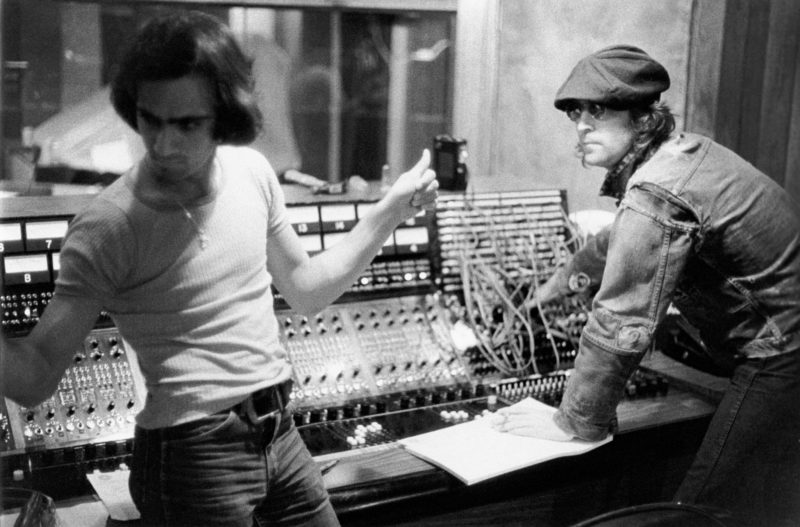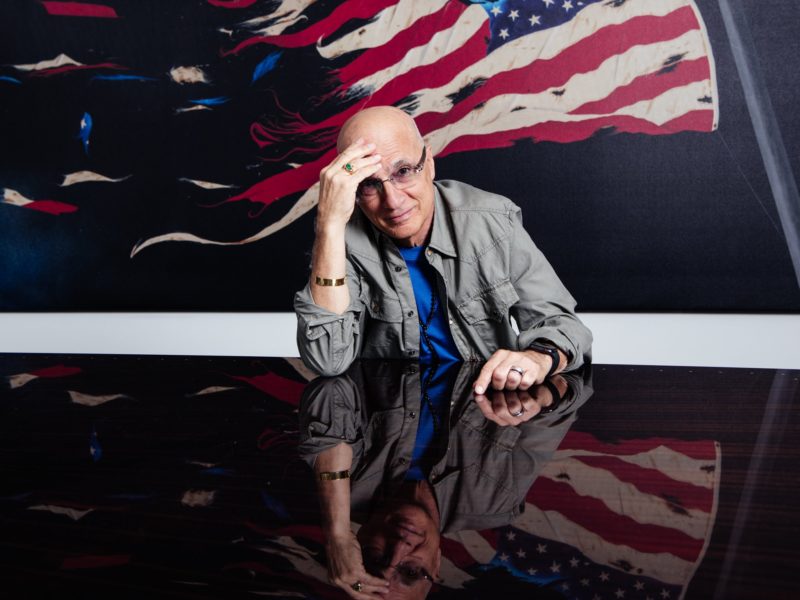Have we entered into an age of music where artists are afraid to alienate people? Since the country is so polarized, am I afraid to alienate the other audience? Am I afraid to alienate a sponsor from my Instagram?
Origen: Jimmy Iovine Knows Music and Tech. Here’s Why He’s Worried. – The New York Times interview
A business model problem?

• Are music and tech in the same house, or is the house divided?
The two sides don’t speak the same language… Content doesn’t know what technology is building. And engineers are just going by the way they see a problem.
• What’s the streaming business’s problem on the horizon?
Margin. It doesn’t scale. At Netflix, the more subscribers you have, the less your costs are. In streaming music, the costs follow you.
And the streaming music services are utilities — they’re all the same. Look at what’s working in video. Disney has nothing but original stuff. Netflix has tons of original stuff. But the music streaming services are all the same, and that’s a problem.
What happens when something is commoditized is that it becomes a war of price. If you can get the exact same thing next door cheaper, somebody is going to enter this game and just lower the price. Spotify’s trying with podcasts. Who knows? Maybe that will work.
And let me just say, what Daniel Ek has done with Spotify is extraordinary. I knew who he did those original deals with. Those were impossible deals, and they’re suffering from that now. All the streaming companies are. But he’s done an incredible job.
• If you look at the last 20 years of the music business as a recovery from Napster, has the problem now been solved?
I don’t view it as problem solved. There’s been progress, but there’s a ways to go yet. If I were still at Interscope, here are the things I’d be worried about. I’d be worried that I don’t have a direct relationship with my consumer. The artists and the streaming platforms do.
I’d be worried that an artist like Drake or Billie Eilish streams more than the entire decade of the 1980s, according to the information I’ve seen from labels and streaming services. I’d also be worried that the streaming services aren’t making enough money, because that can jackknife.
• What about the future of the record business? Why should the next Billie Eilish sign with a record company at all?
The artists now have something they’ve never had before, which is a massive, direct communication with their audience — from their house, their bed, their car, whatever. And because of that, everybody wants them. Spotify wants them, Apple Music wants them, Coke wants them, Pepsi wants them. And people that make terrible second records are still famous and still have online audiences. The power of celebrity, this obsession with Instagram — it’s driven by personality and lifestyle.
So hail to the artists, because in the end they’re winning. It isn’t their problem to figure out how the streaming company and the record company are going to make more money. It’s the streaming company and the record company’s problem to figure out how to become more valuable to that artist.
• You left Apple in 2018, just three years after launching Apple Music. Why?
When I went to Apple, it was a new creative problem for me. How do we make this the future of the music business? How do we make it not ordinary? But I ran out of personal runway. Somebody else will have to do that.
• What do you think about Taylor Swift pushing for control of her master recordings?
Well, who doesn’t want to own their masters? But what she is doing is amplifying that because she has a giant platform. That’s going to have an effect, and it isn’t going to be neutral. So if you’re a 16-year-old kid making music on Pro Tools, that is now in the conversation. If I was still at Interscope. I would say, “O.K., this is coming. So I have to figure out, how do I evolve my relationships with artists?”
• What’s the secret for an artist to have a long career today?
Quality — of everything you do. Make quality the priority, not speed. Speed is marketing, but you have to have something great to market.
Dre says we’re seeing a lot of quantity over quality right now.
• Are you impressed by artists’ work now?
Artists have these new platforms that are very, very powerful. So why do visual artists like Mark Bradford, Kara Walker, Ed Ruscha, Jenny Holzer make such powerful statements on where we are today in our culture, like Marvin Gaye, Public Enemy, Bob Dylan or Rage Against the Machine did? What has changed?
One of the reasons I left music was because there wasn’t a kind of music that I related to. I grew up with Patti Smith, Bruce Springsteen, John Lennon. … And here was a guy whose music I loved, and all of a sudden, I was part of, “We don’t agree with this.”
These days I am getting that from the art world and not the music world.
…
When I got that painting, I knew that Ed had hit on something. And I said, “Where are the musicians that are doing this?”
There are some clues. Have we entered into an age of music where artists are afraid to alienate people? Since the country is so polarized, am I afraid to alienate the other audience? Am I afraid to alienate a sponsor from my Instagram? I don’t know. I’m asking the question.

• But you do have artists like Eilish who are talking about climate change.
There are a few. But not nearly enough.
If I were still running Interscope, I would be signing artists and encouraging them. Right now there are a lot of people running around saying, “What’s making noise on TikTok?”
That’s fine. But I’m more encouraged by the people who are saying, “Whoa, this artist has something to say. I’m going to support them, because I believe that in the end they’re going to win, and that will make all of us win.”
– – – –
The biggest story in music over the last decade was the industry’s reconciliation with tech — after a decade fighting the internet, the music business fully embraced it in the 2010s. Streaming has now finally returned the business, which was nearly decimated by the shift from physical to digital formats, to growth.
Perhaps no one has had a broader view of this phenomenon than Jimmy Iovine, the producer and record executive who made the leap to the other side. He and his partner, Dr. Dre, sold their company, Beats Electronics, to Apple for $3 billion in 2014 and helped launch Apple Music, the tech giant’s late entry to the streaming market, which now has more than 60 million subscribers.
It was, from the start, a strange pairing. Apple is obsessively cautious in maintaining its public image; Iovine, the son of a Brooklyn longshoreman, blurts profanities in a high-pitched rasp and is one of music’s great hustler-salesmen. But Iovine, who co-founded the Interscope label in 1990 and led it until he left in 2014, has long been one of the sharpest observers of the tug-of-war between the entertainment business and Silicon Valley.
Iovine, 66, retired from Apple in 2018, and says he has devoted himself to passion projects like the XQ Institute, an educational initiative led by Laurene Powell Jobs, who was married to the Apple co-founder Steve Jobs. He has even started taking guitar lessons. “I’m realizing how hard Tom Petty and Bruce Springsteen’s jobs really were,” he said from his home in Los Angeles, with a chuckle.
“This painting says more than any song that I’ve heard in the last 10 years,” Iovine said. “Why is that?”
